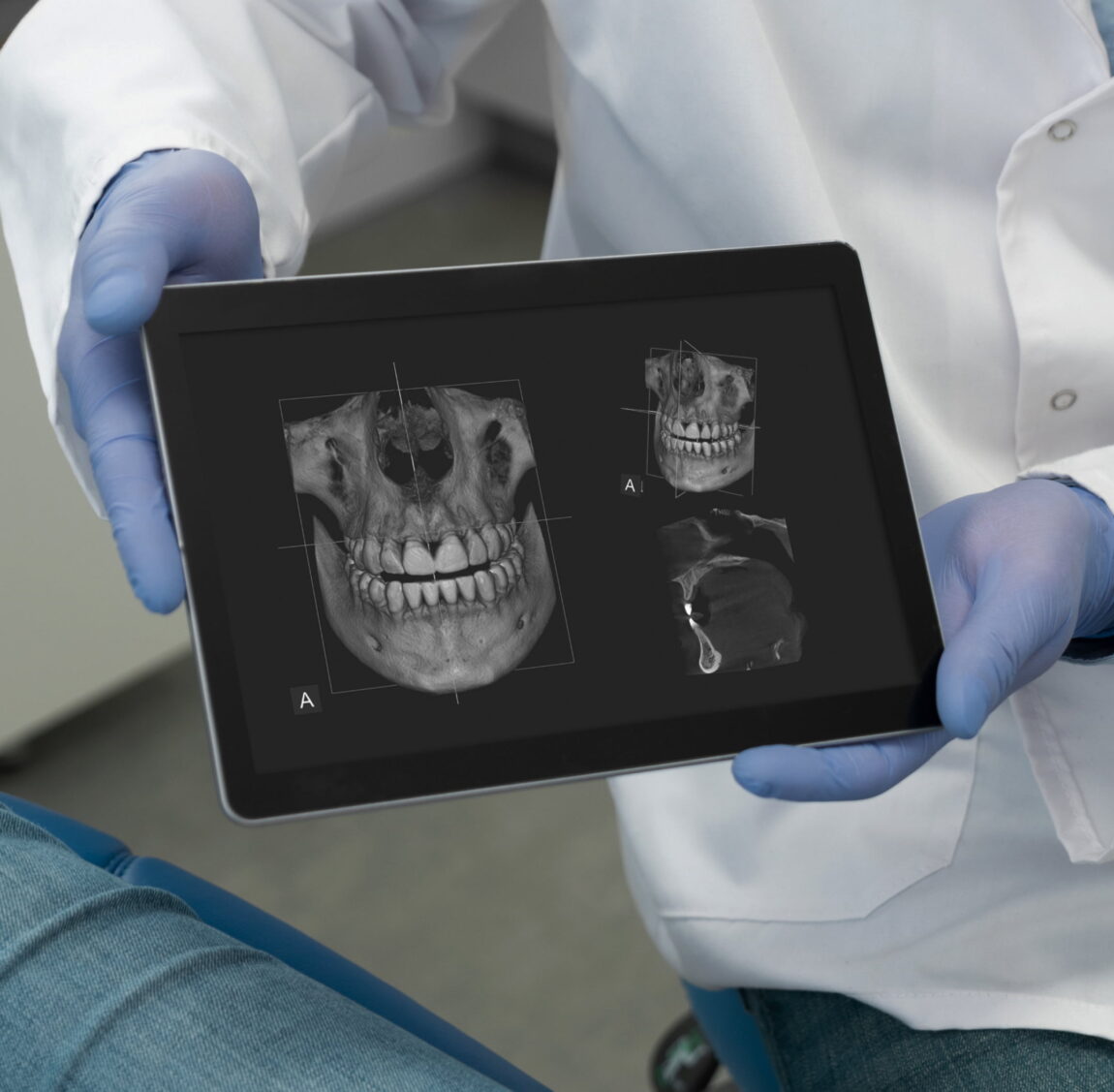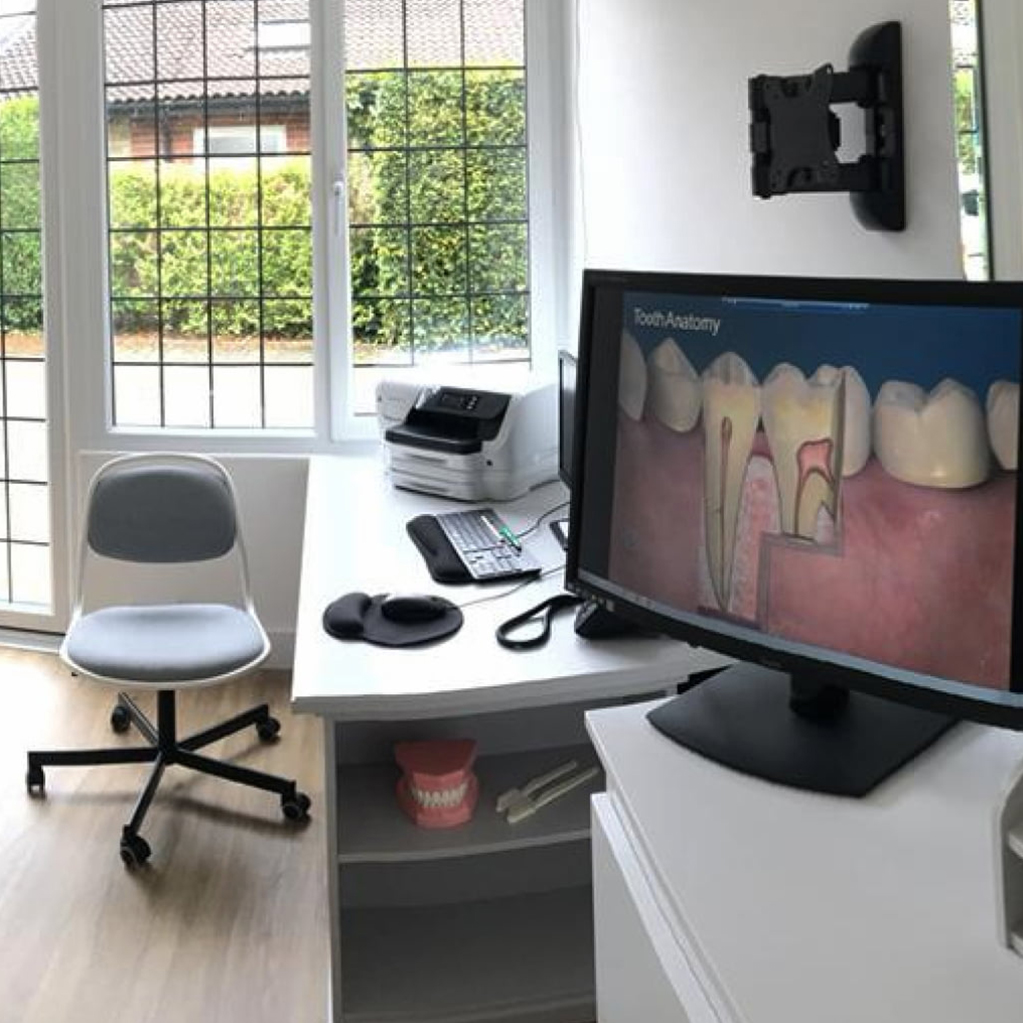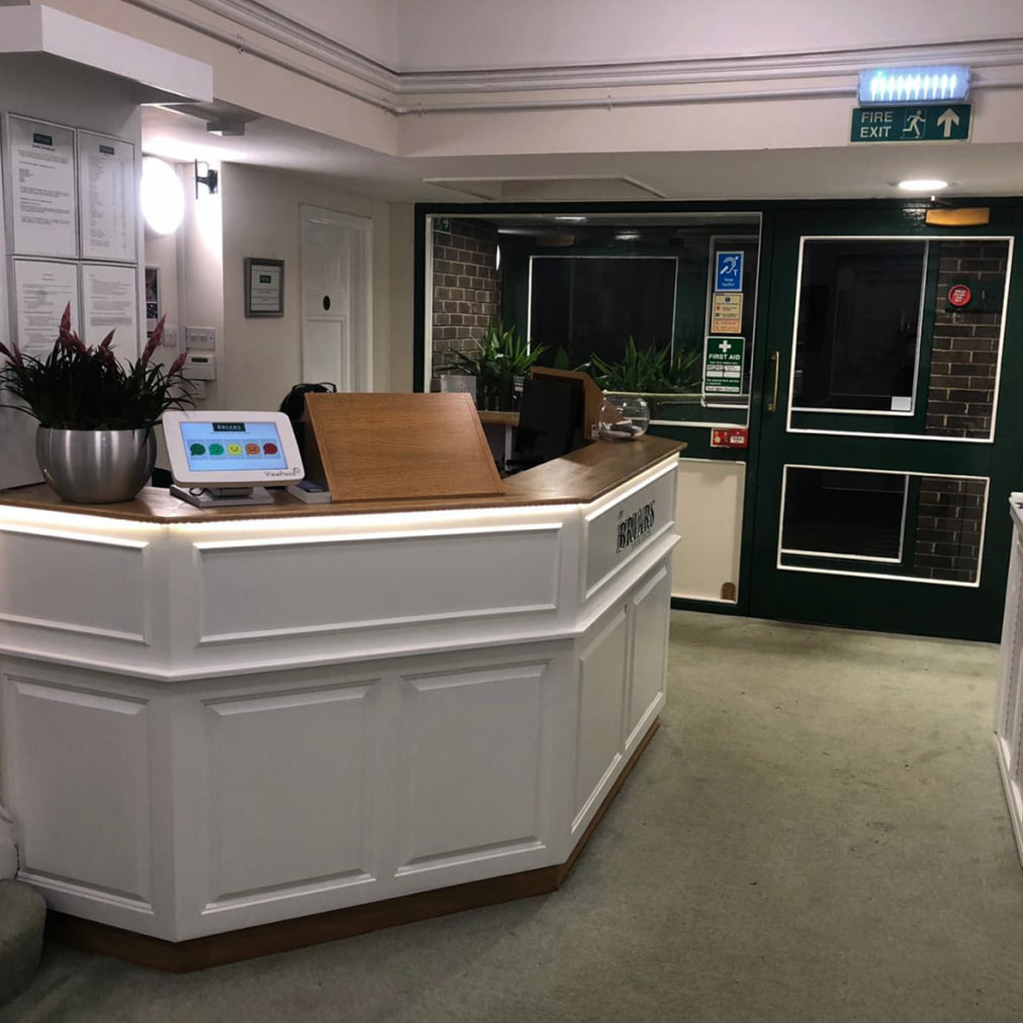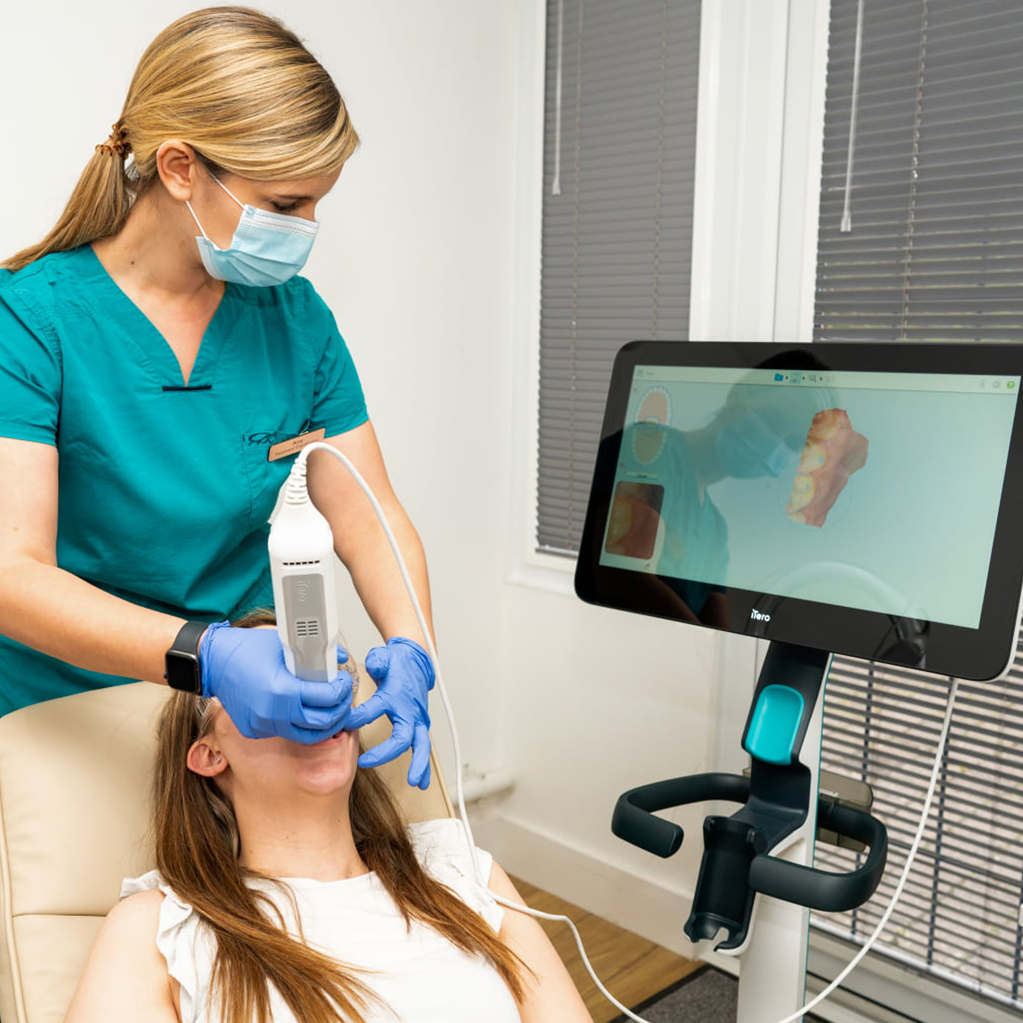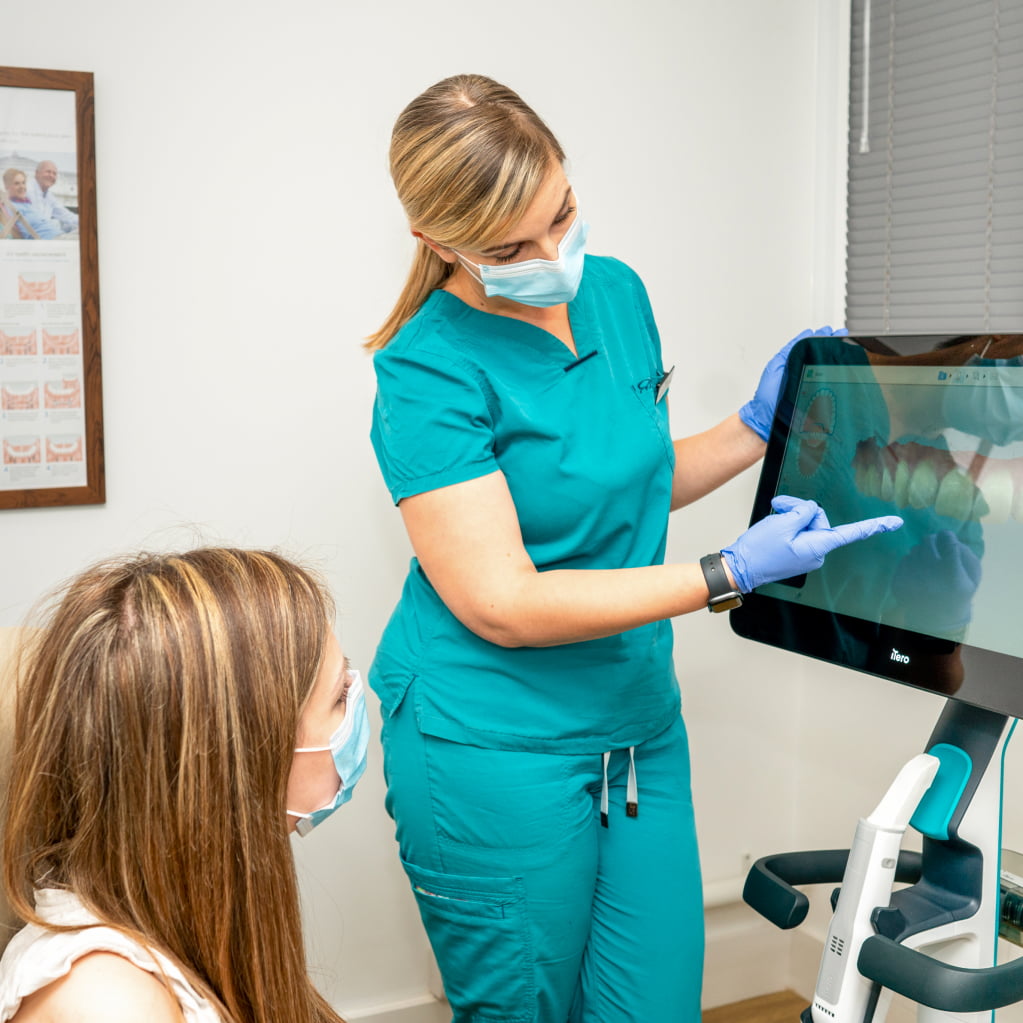Biofilm is the bacterial build-up in the mouth; the bacteria work together to form a harmful cluster which releases toxins and stimulates the inflammatory response known as gingivitis. This, if left untreated, can progress to a more destructive condition known as periodontitis, which can result in tooth mobility and eventual tooth loss.













